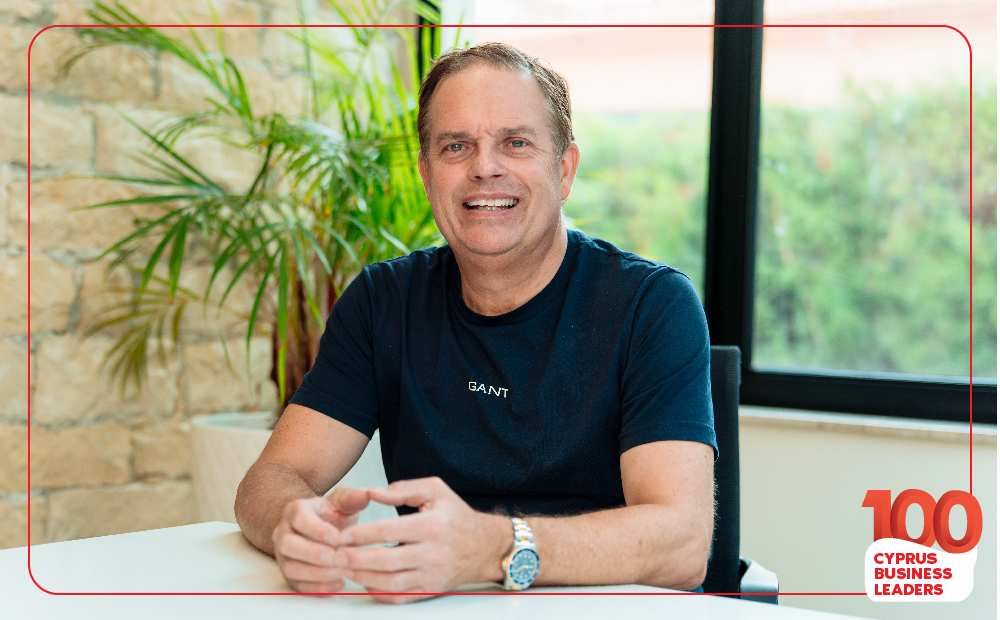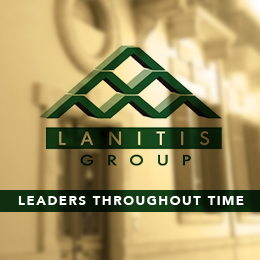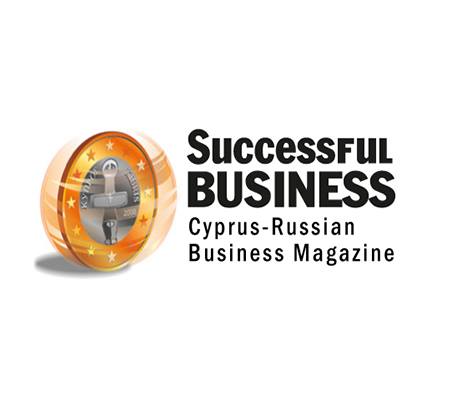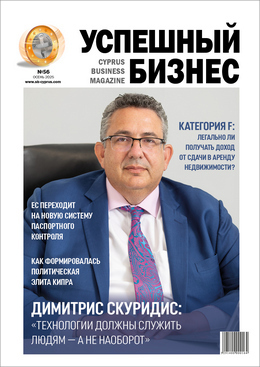Steve Slocombe – Founder of GRS Recruitment – has spent the past two decades shaping careers and companies alike. What began as a passion for communication and connection in London evolved into one of Cyprus’s most respected recruitment firms. From starting out in a spare bedroom to building a multi-office enterprise, Steve’s journey is not just one of entrepreneurial success, but of quiet leadership, cultural adaptability and long-term human investment. In this interview, he shares his views on trust, ambition, and the deeply personal art of matching people with possibility.
Your work sits at the intersection of talent, business and trust. What first drew you to the world of recruitment – and when did you realise this would become your life’s work?
I suppose recruitment, at its core, is about communication and connection – two things I’ve always found energising. When I first started out in recruitment in London, it was one of those rare moments where you realise you’ve found something you truly enjoy. Speaking to people for a living, helping them navigate pivotal moments in their careers – it never felt like a job in the traditional sense. I began in property recruitment in the West End, moved into boutique financial search, and then, 20 years ago, set up GRS in Cyprus from the spare room in my house. Looking back, it became clear very quickly that this wasn’t just a phase or a stepping stone – it was something I wanted to build my life around.
You have spent over two decades connecting senior leaders with high-impact opportunities. In that time, how has your own definition of leadership evolved?
Leadership is often misunderstood. It’s not about hierarchy or titles. True leadership is about leading from the front, leading by example, and understanding that people are not one-size-fits-all. Over the years, I’ve learnt that the best leaders are those who listen, adapt, and inspire trust. In Cyprus, leadership used to be very top-down – the owner dictated everything. But with more internationally educated professionals returning and foreign businesses entering the market, we’ve seen a shift. It’s now more collaborative and human-centric, and I find that a far more effective model. Personally, I feel much more confident as a leader now – not because I know everything, but because experience has taught me when to trust others, when to guide, and when to get out of the way.
Recruitment is often seen as transactional, yet your approach suggests something deeper – almost strategic matchmaking. How do you decide whether a person truly belongs in a particular role or culture?
It comes down to listening, observing and educating – both clients and candidates. Some companies come to us with very rigid ideas of who they need, but those expectations aren’t always realistic or helpful. That’s where we come in, bringing the benefit of two decades of local and international insight. Sometimes the real challenge is helping an employer see beyond the CV and into what kind of person will actually thrive in their team. On the other side, candidates don’t always see their own potential or know how to articulate it. We coach, guide and frame the opportunity – showing them what a role could become, not just what it is. That’s where the magic happens.
What was one moment in your professional life that challenged your own instincts – and how did it change the way you lead today?
There was a candidate, many years ago, who came into an interview mid-phone call. At the time – before smartphones were the norm – it felt incredibly disrespectful. My immediate instinct was that they’d blown it. But they wrapped up quickly, and once we started talking, they were phenomenal. That experience taught me not to make snap judgements. You always have to give people space to surprise you. It’s a lesson I carry into leadership every day – that first impressions aren’t always the full story.
Many talk about the importance of people in business, but few commit to building long-term human capital the way you have. What does investing in people really mean to you?
To me, it means creating an environment people actually want to be part of. I often say happy people are productive people. If you take away the ‘Sunday night horrors’ – that dread of going into work the next morning – you’re already halfway there. Our management team has been with us for over a decade in many cases, and even those who move on tend to speak well of us. We also run a graduate programme where we bring in someone with no experience, train them up, and help them move into their chosen career path. It’s about mentorship, trust, and putting yourself in their shoes. That’s how you build real loyalty and impact.
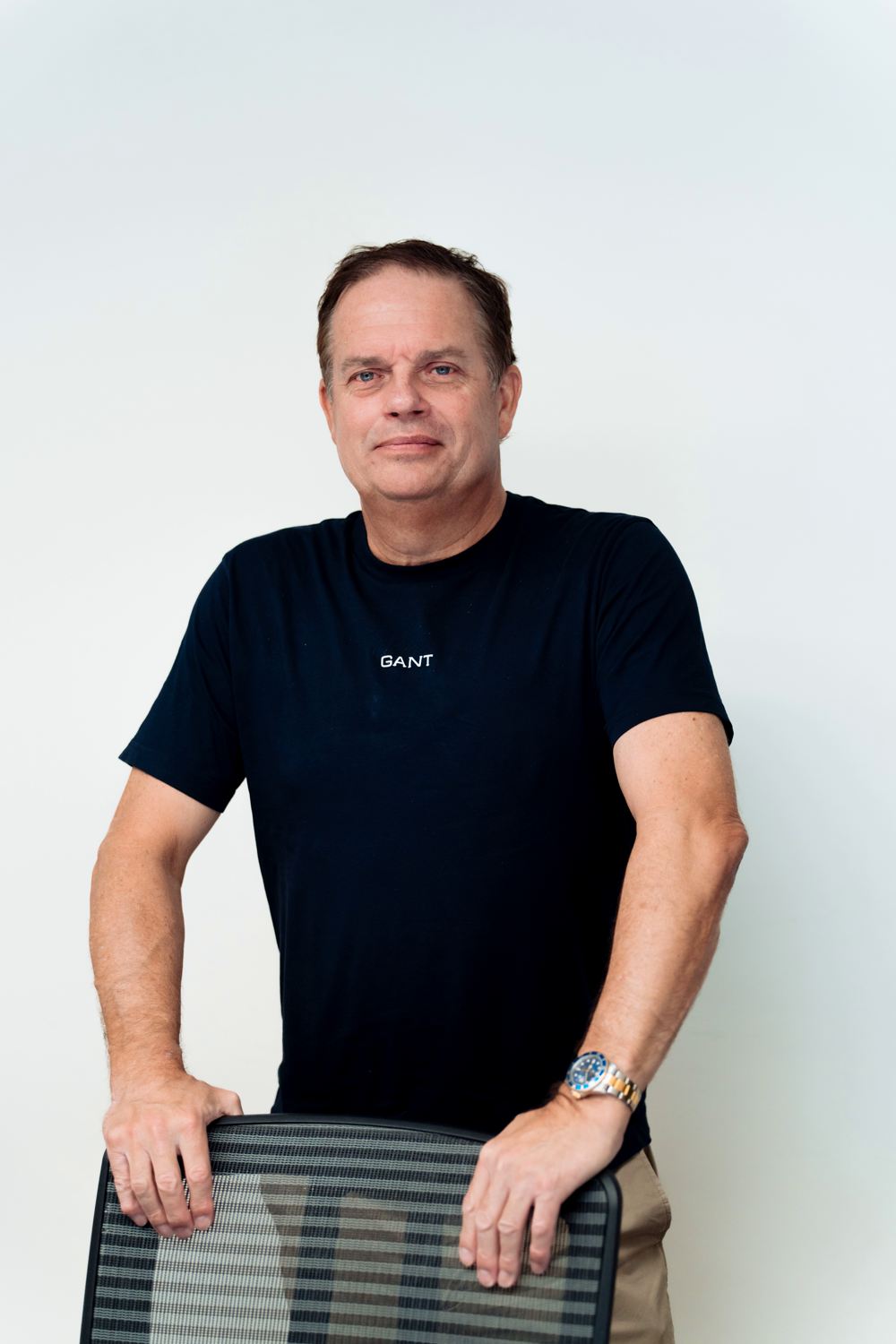 You work across multiple geographies and cultures. What has been the greatest lesson you’ve learned about human nature through working with global clients and candidates?
You work across multiple geographies and cultures. What has been the greatest lesson you’ve learned about human nature through working with global clients and candidates?
The biggest lesson? Adaptability. People operate differently across cultures, and if you try to change them rather than adapt to them, you’ll hit a wall. Israelis approach things differently from Russians. Germans and French have different communication styles. When I first arrived in Cyprus, I expected meetings to be transactional, like in London. But within hours of picking up the phone, I had ten meetings booked – because here, people want to meet face to face. They want to see the whites of your eyes. That taught me that business is still deeply human, and the more you understand those nuances, the more successful you’ll be.
We often hear about success – but what has failure taught you that success never could?
Failure is your best teacher, hands down. It forces you to recalibrate, to ask the hard questions you often skip when things are going well. When you succeed, it’s tempting to ride the high and move on. But when you fail – even if you don’t like to call it that – you’re forced to reflect. What could I have done differently? What did I overlook? Those moments of self-analysis have helped me grow more than any win ever has. It’s not failure – it’s feedback. And you need it to evolve.
How do you personally recognise when someone is ready for more – not on paper, but in spirit?
It’s part intuition, part observation. At GRS, we use CliftonStrengths, a psychometric tool that focuses on people’s strengths. Some people naturally have the ability to spot others’ potential – I think I’ve always been drawn to that. You watch how someone approaches challenges, how they communicate, what excites them. We’re a meritocratic business. If someone is ready, regardless of time served, they can progress. But it’s also important to realise not everyone wants that. Some people are happy where they are – and that’s equally valid. The key is not to impose your own ambition onto others.
What role does intuition play in your decision-making – and how do you distinguish it from bias?
Intuition definitely plays a role, especially when you’ve seen similar patterns and outcomes before. But you have to be very aware of where intuition ends and bias begins. For us, bias is something we actively work against – because if we don’t find the right candidate, we don’t get paid. We’ve had clients come to us with biased requirements – gender, nationality – and we’ve had to push back. Not just because it’s illegal in the EU, but because it’s bad business. The right person is the right person, full stop. Our job is to help clients see that.
How has building your own company changed your views on ambition, fulfilment and what it means to create value?
To be honest, I’ve always been ambitious – that hasn’t changed. I was strategic about where I studied, where I worked, and how I moved overseas. Starting GRS was a natural step. What has changed is my understanding of what value looks like. It’s not just revenue or market share – it’s legacy. It’s building something from scratch, being your own boss, and knowing you’ve created a place where people feel they belong. As a foreigner starting a business in Cyprus, I know the odds weren’t necessarily in my favour. But we built something that lasted – and that’s a reward in itself.
In the intensity of your work, how do you preserve clarity and perspective? Are there personal routines or boundaries that help you stay grounded?
Every morning, Monday to Friday, I’m out on my bike by 5:30. I live in the countryside, and there’s something about that quiet time, riding through the hills, that sets the tone for the day. It clears the head and re-energises the body. It’s become a non-negotiable routine. And when things get overwhelming, I remind myself – we’re not saving lives. We’re not doctors. Yes, what we do matters. We can change lives by helping people find the right job. But it’s important not to carry the weight of the world on your shoulders. Keep perspective. Keep moving.
If one day your story becomes a case study for future entrepreneurs, what question should it ask – and what truth would you hope they take away from it?
The question should be: are you out there? Are you talking to people? Are you adapting? If you’re just sitting at your desk, waiting for something to happen, you’ll be waiting a long time. Success comes from being in the world – networking, building relationships, being visible. The truth I’d want people to take away is that you have to be open – to people, to cultures, to change. You have to be willing to evolve, to meet people where they are, and help bring them to where they need to be. That’s the essence of what we do, and it’s what I believe leads to lasting impact.
Interview by Kateryna Bila
#SB100Leaders
